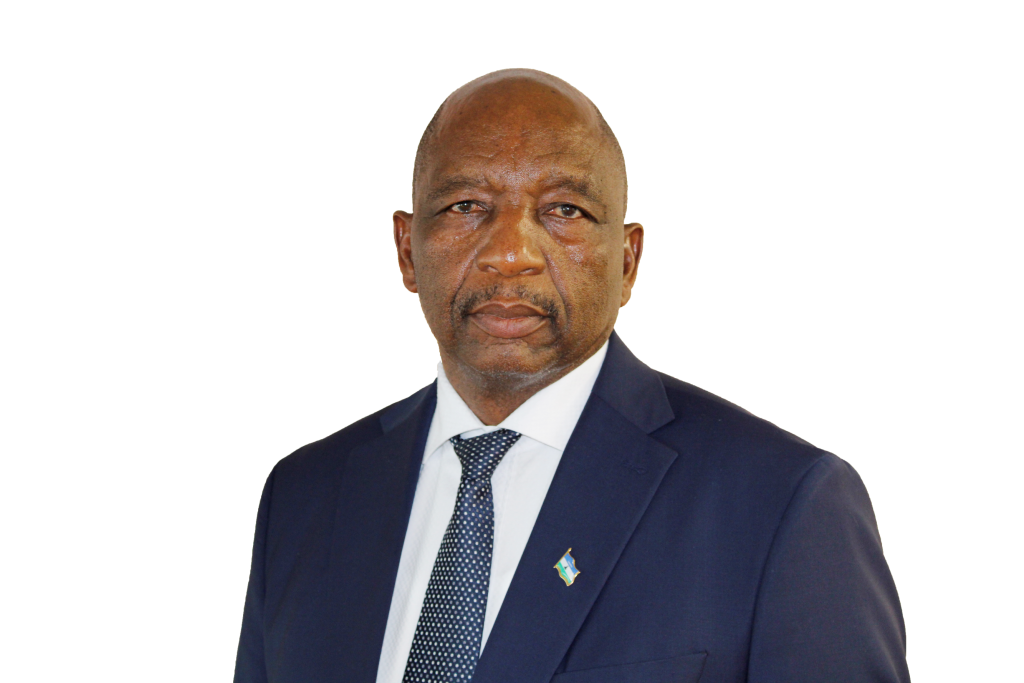… As local NGO puts him in a corner
Staff Reporter
Prime Minister Ntsokoane Matekane is under intense pressure to settle a constitutional challenge out of court, as the Christian Advocates and Ambassadors Association demands government action on the escalating food crisis.
This proposal follows recent sharp increases in maize meal prices, further exacerbating the country’s dire food insecurity.
The association’s lawyers made their demands clear in a letter to Attorney General (AG), advocate Rapelang Motsieloa, this week.
The lawyers stated: “We humbly pray that we make a consent order in the public interest and public health couched in the following terms:
(a) A declarator that there is a food insecurity disaster effective from the 12th of July, 2024 to the 31st of March, 2025;
(b) That the state should alleviate and minimise the adverse effects of food shortages and poverty inter alia by:
(i) Introducing financially sponsored interim community development and poverty alleviation projects for the period of a year or more;
(ii) Providing food parcels directly and/or subsidizing the cost of food for the needy for the period of six (6) months or more;
(iii) Putting in place well-directed long-term programs liable to alleviate the adverse effects of food shortages and poverty;
(c) That the parties should come to report back to the Court via Affidavits and/or their counsel as to the extent of Government compliance with orders to be issued herein after every six (6) months;
(d) That there be no order as to payment of costs.”
Matekane on July 12, declared a national state of food insecurity disaster, as the country grapples with the most severe El Niño-induced drought in a century. He stated that the country requires M1.2 billion to tackle this urgent crisis of food insecurity.
He announced that the declaration of the state of disaster would lapse on March 31, 2025, and called on aid organisations for assistance. The government has allocated M200 million to help address the situation.
The association’s lawyers argued that the offer of an out-of-court settlement aligns with the disaster declaration.
“If you reject this offer you shall be blowing hot (approbating) and cold (reprobating) air by denouncing the declaration made by you,” they warned.
They further cautioned Matekane that if he expressly or impliedly rejects “our fair and bona fide offer after five days of your receipt of this letter, we shall have no alternative but to file the replying papers to your answering papers and to pursue this matter vigorously to finality.”
A few days before declaring a state of disaster, Matekane had argued in an affidavit responding to the association’s founding affidavit that there is no right to food and the government has no duty to provide food for its people.
“It is denied that there is a right to food. I further deny that the right to life is inclusive of emotional, intellectual, or spiritual needs. The right to life literally pertains to non-deprivation of one’s life, which I must add may be deprived as captured in Section 5 of the Constitution,” Matekane stated in an answering affidavit.
He had also denied that the lack of food poses a threat to life.
“Life is not dependent only on food as there are other contributory factors,” he said. “I vehemently deny that a person who has access to food leads a healthy life. One can have access to food and still live an unhealthy life,” he added.
Matekane further “vehemently” denied that the government has a duty to provide food for its people.
“It is noted, however, that Section 25 indeed realises that the government, depending on or subject to the limit of its economic capacity and development, may progressively realise the principles as appear under Chapter III,” he said
The association’s lawyers countered this argument in their proposal for an out-of-court settlement, stating: “In fairness to you, your arguments are not uncommon at law albeit, they are incorrect. But they are a factual and legal anathema to the lay public (elector) and a hungry man.”
They argued that Section 5 read with Section 27 of the Constitution impliedly provides for the right to life, which necessarily includes the right to food and a healthy life.
“The Government of Lesotho has already commendably DECLARED A NATIONAL FOOD INSECURITY DISASTER on the 12th July, 2024,” they noted.
“Now what bars the Government from consenting to provide food in order to protect life and ensure a dignified and healthy life to its poor citizens in terms of Sections 5, 8, 25 and 27 of the Lesotho Constitution read with the relevant legislations?”
They further argued that the right to life entrenched in Section 5 of the Lesotho Constitution is enforceable when there is a threat to life and not after death.
“For an unborn and/or a dead person has no locus standi and/or any rights to enforce in Courts,” they said.
“It is clear from the foregoing that food must be availed to all citizens and/or they be equipped with the means of procuring food, namely: paid jobs, projects, and cash/money. That people must have access to their staple food. The maize meal is necessary to make papa as Basotho cultural and staple food.”
The lawyers highlighted that the government, being a stakeholder in the Lesotho Flour Mills, cannot permit a 15 percent hike in food prices without violating the right of access to food.
They also asserted that Matekane’s main defenses have very little or no prospects of success.
“Even if you may win it today, your victory shall not stand the test of time – it shall constitute a bad precedent. For you cannot justly win an argument that absolves you from taking the responsibility over your own children/citizens.”
Summary
- They further cautioned Matekane that if he expressly or impliedly rejects “our fair and bona fide offer after five days of your receipt of this letter, we shall have no alternative but to file the replying papers to your answering papers and to pursue this matter vigorously to finality.
- A few days before declaring a state of disaster, Matekane had argued in an affidavit responding to the association’s founding affidavit that there is no right to food and the government has no duty to provide food for its people.
- “It is noted, however, that Section 25 indeed realises that the government, depending on or subject to the limit of its economic capacity and development, may progressively realise the principles as appear under Chapter III,” he said.

Your Trusted Source for News and Insights in Lesotho!
At Newsday Media, we are passionate about delivering accurate, timely, and engaging news and multimedia content to our diverse audience. Founded with the vision of revolutionizing the media landscape in Lesotho, we have grown into a leading hybrid media company that blends traditional journalism with innovative digital platforms.










